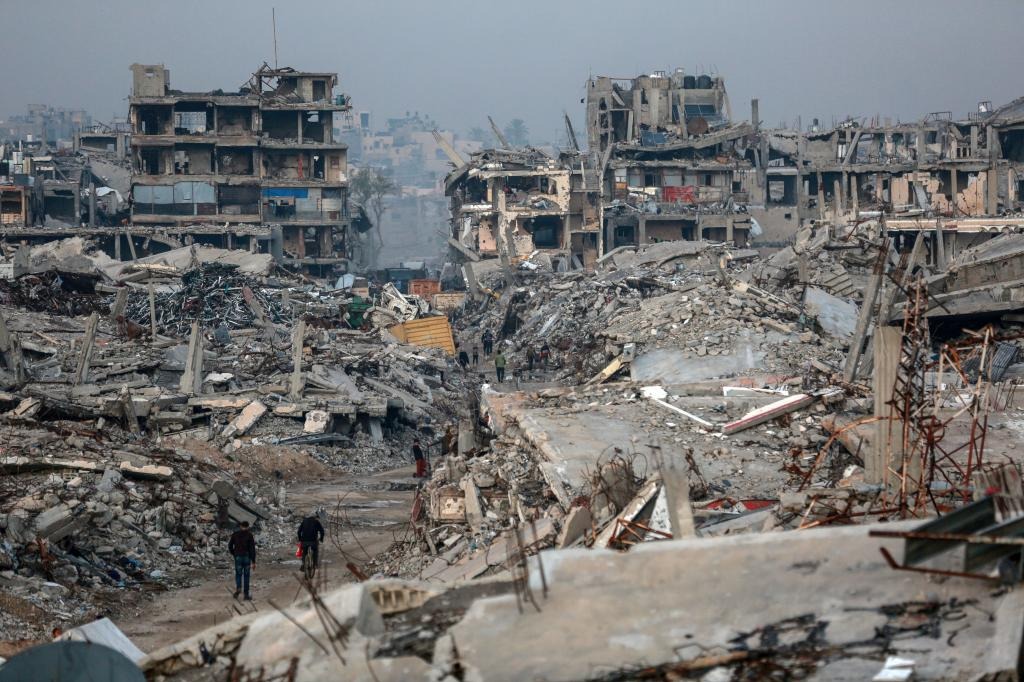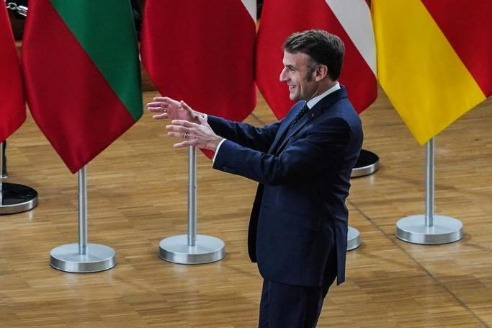Experts call for end to global power rivalries

Multilateralism stressed at online forum as states urged to constrain competition
The COVID-19 crisis has led to economic, social and structural changes in almost all countries, and stakeholders should find ways to strengthen multilateralism rather than enter an endgame of continuing power rivalries and confrontations, experts said at an online forum.
"The coronavirus magnifies the underlying structural reality that great power rivalry is still a main topic in the world order and disorder," said Graham Allison, Douglas Dillon professor of government at Harvard University.
Allison is the author of the book Destined for War: Can America and China Escape Thucydides' Trap?, which unpacks whether China and the United States can avoid direct confrontation.
Allison, whose remark that China and the US will ultimately fall into the "Thucydides trap"-where when one great power threatens to displace another, war is almost always the result-said at the World Peace Forum held by China's Tsinghua University on Tuesday that the coronavirus pandemic did not change his view that China and the US are still different in many ways.
Tensions between China and the US are rising again, but rivalries will do no good to either China or the US, Allison said. "The pathogen has condemned, in effect, both countries, despite whatever hostility to work together at least to the extent necessary to ensure each nation's survival and well-being."
In addition, Allison said the coronavirus also provided a vivid reminder that every nation, not only China and the US, is facing external threats. "It cannot be defeated by countries acting alone."
As the coronavirus threatened all human beings, "survival required adversaries to constrain their competition".
Although some countries, Allison said, have politicized the fight against the pandemic and used the virus to promote competition among countries based on their own interests, China's performance during the outbreak reflected its global vision of being a responsible major country.
'Impressive results'
"China's leaders' recognition of the magnitude of the COVID-19 threat, and their decisive actions to defeat it, including quarantining a province of 60 million people, had produced very impressive results," Allison said, despite the fact that there seemed to be a recent resurgence of the outbreak in Beijing.
"If I look at the response, I think (their actions) are going to be successful. I think China's response in maintaining the stability of its economy is impressive and outstanding."
Further, Allison said China is also stepping up to help other states.
"I was very thrilled when seeing the Patriots' (a local football team) airplane arrive in Boston airport with a million face masks from China. Also, by quickly sequencing the genome of the virus and posting it, China provided the essential data for scientists around the world," Allison said.
Another speaker, Volker Perthes, the CEO and director of the German Institute for International and Security Affairs, said the pandemic had exposed both the weaknesses and the strengths of international organizations and states.
Perthes echoed Allison when he said that the pandemic had accelerated some existing problems of the international community, with many countries becoming "selfish and protectionist", while some less developed countries are even more vulnerable to the impact of the crisis, with their economies and people's livelihoods on the brink of collapse.
He said international cooperation was even more important at a time like this.
"The withdrawal of the United States from some international organizations and treaties is not conducive to the joint response of all countries in the global crisis. It is also a disrespect for the international order, which will ultimately weaken the US' global influence."
Alexander A. Dynkin, the president of the Primakov Institute of World Economy and International Relations in Russia, said that since the pandemic had deeply disrupted global supply chains, it would make development among countries in the post-pandemic era even more uneven.
"Small and poor countries tend to be more affected by the outbreak than major powers. Asymmetry is a part of the post-COVID world order, and it is probably very dangerous," he said.
Qiu Yong, the president of the World Peace Forum and president of the Tsinghua University, called for coordinated international efforts as he said it was the only way to overcome the current crisis.
































